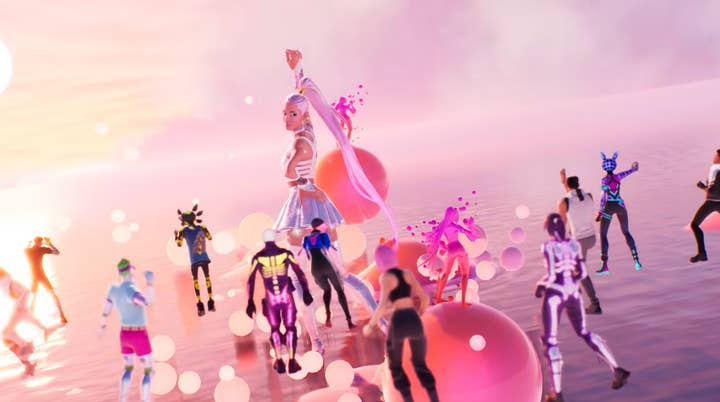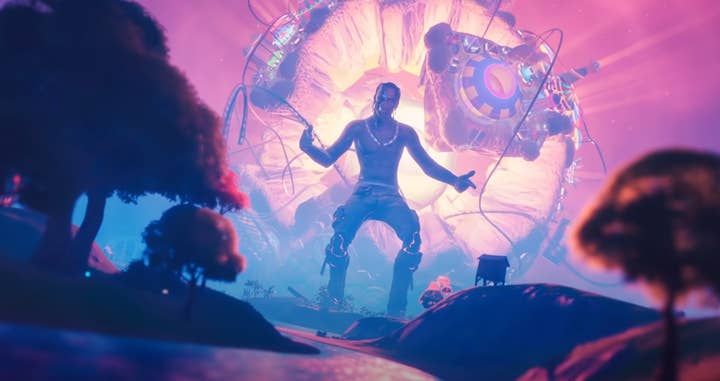Will Epic's ownership of Bandcamp affect the music industry for better or worse?
Games composer Kenny Young, artist 2 Mello and more share thoughts on how the deal will affect independent creators
Last week saw Epic Games acquire independent music platform Bandcamp, the latest in the Fortnite maker's line of creator-driven deals.
Bandcamp was founded in 2007 to give musicians a place to sell music fairly, at a time where distribution started to pivot to digital. From the off, the site has been designed to give creators full power over how they sell their work, and for how much.
It also became a home for indie developers to sell soundtracks; music from Bastion, Terraria, Super Meat Boy and Undertale are but a few examples of games that have had OSTs sold through Bandcamp.
While the terms of the Epic deal were not disclosed, Bandcamp co-founder Ethan Diamond was keen to affirm that the services that Bandcamp creators depend on won't be going anywhere -- including Bandcamp Friday, a monthly initiative launched in 2020 where the site takes 0% of any artist's sales for 24 hours. But even with that, many creators were left feeling uncertain about the site's future under such a large umbrella.

Kenny Young, sound designer and composer on games including Astro's Playroom and Little Big Planet, questions the announcement's promise to build more opportunities for creators, and whether this deal is more about games than traditional artists.
"It's tempting to think that this purchase must be games-related, but the more I think about it the more unlikely that seems," Young tells GamesIndustry.biz.
"It's certainly possible that they'll explore low friction ways of getting Bandcamp music into games -- this would have to be an 'opt-in' for artists as Bandcamp don't own any of the music on their service and therefore don't have the right to licence it without first gaining permission from rights holders.
"But honestly, the use of licensed music in games is a miniscule niche that would only benefit a handful of artists on the platform, so I don't think this alone explains or justifies the acquisition."
Matt "2 Mello" Hopkins is a composer and hip-hop artist heavily influenced by games, best known for his Jet Set Radio inspired album.
Hopkins said he would prefer to stay as independent as possible, and the increasing rate of consolidation across the industry has made him nervous.
"It's been a shock to wake up to the news and find that my little corner can also be touched by this ongoing consolidation of everything"
2 Mello
"I've put a lot of my chips on Bandcamp and I've always said to myself 'things will be OK as long as Bandcamp is there'. For this reason, it's been a shock to wake up to the news and find that my little corner can also be touched by this ongoing consolidation of everything."
Antoine Bordeleau, head of audiovisual at games marketing agency Purple is Royal is in a unique position; he creates and sells music professionally via Bandcamp but also works with indie titles.
Even from both angles, the acquisition came as a bit of a surprise to Bordeleau, as Epic's presence over a company with grassroot support at its core was instantly questionable. It's not just Epic either; an even larger shadow looms over Bandcamp -- Tencent.
"The pay-what-you-want model and the implied independence of using the platform has always been extremely appealing to indie artists as well as music fans wanting to give back to the acts they love, without having a big corporation grabbing most of the money from said transaction," Bordeleau says.
"Epic's -- and by extension, Tencent's -- involvement in Bandcamp can be seen as an immediate cause for concern in this department."
Looking at the bigger consolidation picture, the music industry is becoming increasingly intertwined. Tencent Holdings has a 48% stake in Epic Games, and while that doesn't directly affect Bandcamp, Tencent has slices of other businesses that might tip the scales.
Tencent Holdings has a 58% stake in Tencent Music, and both have a 10% stake in Universal Music. Universal has a 3.5% stake in Spotify, while Tencent Music has a 9% stake, and Sony Music has a 2.9% stake. While the percentages are all relatively low, the tethers are still present, and unnecessary ownership of art is the entire problem that Bandcamp was established to avoid.

Ella Hagi, senior campaign manager at creative studio Yrs Truly, emphasises Bandcamp's authenticity, particularly its cruciality in uplifting black artists over the last few years. That said, she's remaining open-minded for now, and curious to see what Epic can bring to the table.
"There is authenticity to Bandcamp that no other underground music venture of this scale can claim. Epic, as we know, is partial to indie endeavours," Hagi says. "Who's to say the Epic Store will remain limited to games? Will they introduce a subscription model to Bandcamp?"
"We know of the influence games have had on music, but the influence and credibility musicians have is definitely not at its peak when it comes to promoting games, so this may open new avenues in this respect.
"Epic's -- and by extension, Tencent's -- involvement in Bandcamp can be seen as an immediate cause for concern in this department"
Antoine Bordeleau
"I'm definitely exercising caution here but I do think gone are the days when we need to just dismiss people or companies as sellouts, so I'm keen to see what's going to happen -- I just hope whatever is to come allows Bandcamp to continue putting artists first."
Bordeleau also noted that the deal between the two could close the gap between the games and music industries.
"If Bandcamp and Epic could find a way to bridge the gap between labels, artists and game devs, there could be a whole new way of selling your music and reaching new audiences somewhere in there," he says.
Young also mused on the positives, pushing aside the games angle for a moment to look at how Bandcamp could be improved, and how Epic could help. Last year, the company acquired artist platform ArtStation and 3D marketplace Sketchfab, as part of its vision to build out a marketplace ecosystem for all types of creative disciplines.
"Streaming is how most people consume music these days, and Bandcamp is not a streaming service." Young explains. "Technically it exists, but it's a poor experience.
"More ways for people to find and listen to independent music that fairly compensates artists can only be a good thing"
Kenny Young
"That's partly a business decision which puts all the emphasis on purchases, downloads and merch. But the 2000s-era design of the service also suggests that the company doesn't have the technical smarts to enter the streaming market even if they wanted to. If that's the case, teaming up with Epic perhaps makes a bit more sense.
"I find myself romanticising that Epic are going to take on Apple Music, but an artist-friendly streaming service isn't attractive to the major labels so I'm not sure there's going to be much in the way of competition for big names there. So, it really does look like an altruistic purchase to me -- more ways for people to find and listen to independent music that fairly compensates artists can only be a good thing."
Epic and Apple have been at odds with each other for the last couple of years, primarily in the form of a lengthy lawsuit that sparked after Apple removed Fortnite from the App Store after Epic tried to circumnavigate the platform's 30% platform fee. Bordeleau notes that Epic has garnered both good and bad will from consumers and developers in the wake of that battle, but ultimately Epic does take less money than its competitors.
"The Epic Games Store's cut on transactions is less than half of what Google and Apple siphon out on their respective app stores; this could be a glimmer of hope that if Epic wants to change how music is consumed and bought on Bandcamp, it might be going for a better redistribution of wealth model for artists than what the norm is with streaming services," he says.

Hopkins considers Bandcamp his main source of income, and believes the platform is the best option for receiving continued revenue from a project. He also notes that streaming alone. isn't a reliable or sustainable source of income for a lot of musicians.
"Bandcamp has been the best option for receiving an equitable income from making music," he says. "Speaking as a composer for independent games, I believe Bandcamp is also the best option for receiving continued income from soundtrack work by negotiating with your dev team to sell your soundtracks through the site and keep those profits."
With that in mind, he's a little more reserved on how Epic might alter Bandcamp's offering, even if it doesn't exactly intend to.
"While I do work in games, I don't have any experience working with Epic Games, so my involvement in games makes this acquisition more bizarre and surreal than anything else," he adds. "I've seen how this pursuit of endless growth can change a service that was perfectly fine on its own, and I've always hoped that temptation wasn't there at all for Bandcamp. It's true that we don't know how this one will go, but I don't think it's too unreasonable for artists to already have their defences up about this development."
While Epic's revenue slicing is positive, the hum of buzzwords such as NFTs and metaverse linger, and Bordeleau is concerned that perhaps Bandcamp's pursuit of a deal hastened from the two-year financial lull that the music industry faced in the wake of the pandemic.
And the business has already established its position on blockchain technology. While Valve affirmed that NFTs would not be permitted on Steam, Epic was quick to take the opposite stance, saying that crypto-enabled games and services would be welcome on the Epic Game Store providing they align with platform guidelines.
While there's no reason to suspect that those things will encroach on Bandcamp moving forward, the probability is never zero.
"Take it from someone who remembers MySpace, you really never know when your favourite platform's gonna just shut down, or mutate into something that isn't aligned with your (or your favourite artists') values," Bordeleau says.

